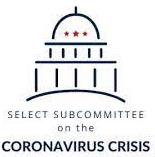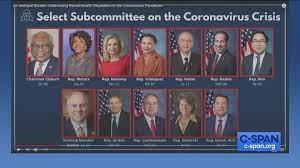On Thursday May 12th the Select Subcommittee on the Coronavirus Crisis issued a staff report highly critical of the red meat industry. The Committee chaired by Rep. James E. Clyburn (D-SC) reviewed and reported on the interaction between the red meat industry and the Administration leading to the Presidential Executive Order of April 28th This mandated plants to remain in operation subject to complying with recommendations on prevention of COVID among line workers. The report documented action by USDA administrators including Dr. Mindy Brashears, the Undersecretary For Food Safety as facilitating action by the Department for the benefit of packers.

In retrospect commentary and perceptions relating to the entire sad period of the COVID epidemic and its impact on the red meat industry and agriculture in general can be compared to Rashomon the Japanese play. The plot involves the murder of a samurai by a brigand and the assault on his wife, as recounted by each of the three participants in addition to a disinterested observer. The characters recount the event from their individual perspectives suggesting that what could be regarded as a simple event may on analysis emerge as a series of complicated issues and what might appear as fact is subject to interpretation based on personal perception and bias.
Beginning in March and extending through May, COVID demonstrated a high incidence rate in the U.S. population. Little was known about the mechanism of transmission and epidemiologists made recommendations based on experience with influenza using previous pandemics including the 1918 outbreak as their model. It is also evident in retrospect that the infection was politicized initially with a strong but misplaced message of denial followed by a response to the reality of an widespread and highly infectious disease. The situation was complicated by lack of leadership and the culture within the CDC that failed to evaluate the situation and provide clear directives to guide the public and industry. Many of the criticisms of the meat industry raised by the Select Committee could also be applied to schools, public transport and other essential activities involving close contact among people.
It must also be recognized that Canada and nations in Europe experienced similar high incidence rates of COVID in packing plants due to common factors that existed in U.S. facilities. Low temperature, high humidity, suboptimal ventilation with infrequent air exchange and close proximity of line workers all facilitated transmission of the virus. The infection also spread among plant employees in their communities and especially during shared transport to their work place.
Decisions made by the Administration leading up to the Presidential Executive Order should be considered in the light of the impact of COVID especially on red meat plants. Volume was reduced in both hog and beef operations to the point that it was necessary to euthanize animals awaiting shipment that could not be processed. In contrast, the chicken industry that was fully integrated, with a short production cycle and a higher level of mechanization in plants was able to adapt with far less disruption in processing and with minimal impact on supply.
 A valid criticism of the Select Subcommittee Report is that it failed to recognize the actions by industry that addressed the problem of COVID in the absence of either treatment or a vaccine and with minimal diagnostic modalities during the first two months of the outbreak.
A valid criticism of the Select Subcommittee Report is that it failed to recognize the actions by industry that addressed the problem of COVID in the absence of either treatment or a vaccine and with minimal diagnostic modalities during the first two months of the outbreak.
It s a matter of record that Perdue Farms invited representatives of the CDC and other agencies to visit their plants and to make recommendation to limit spread of infection. Many companies encouraged workers to stay at home with pay if they experienced symptoms. At an early stage in the outbreak, health screenings were introduced to identify symptomatic workers before they entered plants. Most companies attempted as far as possible to reconfigure production lines and they installed barriers between work-stations. Many of the allegations concerning interaction between the Administration and producers could be interpreted as responding to an unprecedented crisis the proportions of which were evident but appropriate responses were not clearly understood.
Industry responded vigorously to the Select Subcommittee Report. National Chicken Council president, Mike Brown emphasized “We must remember the importance of how uncertain and chaotic the early days of the pandemic were.” He is justified in stating, “The Committee failed to shine a light on the momentous efforts between industry, government and state and local health officials to keep employees safe and to keep Americans fed.”
Julie Ann Potts, president and CEO of the North American Meat Institute stated, “The Committee could have tried to learn what the industry did to stop the spread of COVID among meat and poultry workers, reducing positive cases associated with the industry while cases were surging across the country.”
The unfortunate event resulted in as many as 60,000 cases of COVID among workers in the meat industry with over 250 fatalities but with proportions approximating infection in the general U.S. population. The Select Subcommittee characterized Administration actions as favoring the meat industry at the expense of workers. Applying the Rashomon parallel they could also have considered the necessity of maintaining a supply of protein to the public. The motivation, actions and decisions of the participants will be debated going forwarded but if a study of the pandemic is to provide practical and beneficial recommendations, interpretation of actions and imputing motives should not be viewed through a partisan political prism.